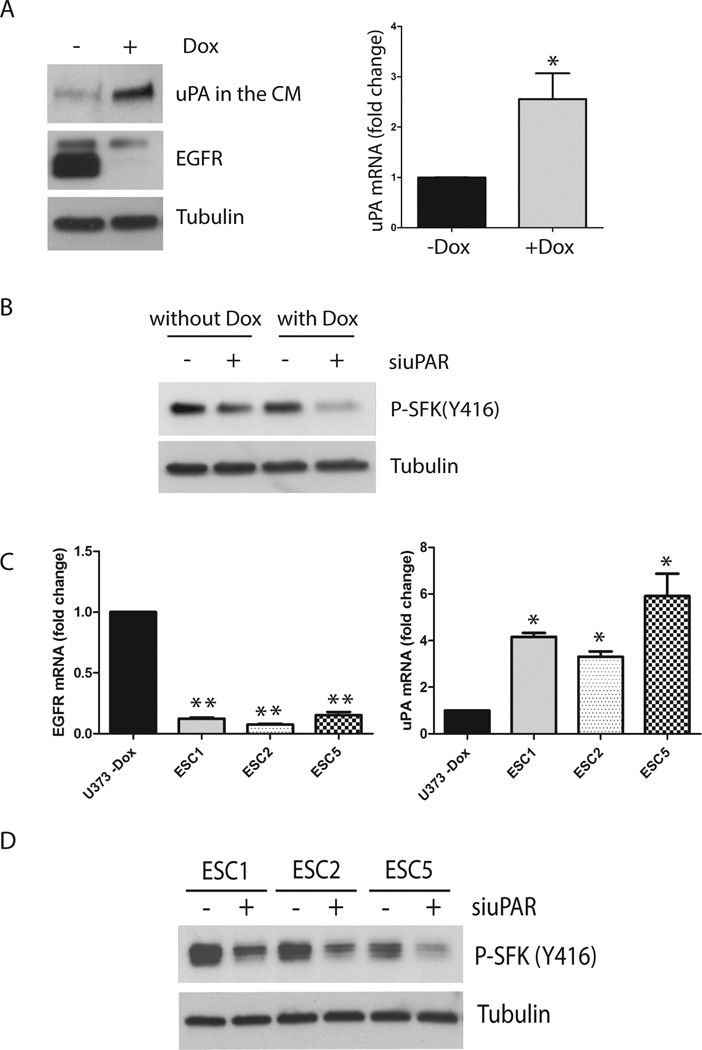Figure 4.
Effects of EGFRvIII neutralization on SFK activation in U373MG GBM cells. (a) U373MG cells that express EGFRvIII under the control of a Dox repressible promoter were treated with Dox (1 µg/ml) (+) or with vehicle (−) for 4 days. The cells were transferred to SFM and allowed to condition medium for 2 days. The medium was concentrated 10× and subjected to immunoblot analysis to detect uPA. Cell extracts were then prepared and immunoblotted to detect EGFR and tubulin as a control for load. Equivalent incubations were conducted to isolate RNA. uPA mRNA expression was compared in Dox-treated (+) and control (−Dox) U373MG cells (*, p<0.05, Student’s t-test). (b) U373MG cells were treated with Dox or vehicle for 6 days. uPAR-specific or NTC siRNA was introduced for 12 h, beginning at day 4. The cultures were then washed and re-equilibrated in SFM with or without Dox for the final 36 h. Cell extracts were prepared and immunoblotted to detect Tyr-416 in SFKs (P-SFK(Y416)) and tubulin as a control for load. (c) EGFRvIII-expressing U373MG cells and Escaper tumor cells (ESC1, ESC2 and ESC5) were cultured in SFM for 24 h. Total EGFR mRNA (wt-EGFR + EGFRvIII) and uPA mRNA levels were determined by qPCR and standardized against the levels present in parental cells that express EGFRvIII (mean ± SEM; n=3, *, p<0.05, **, p<0.01). (d) ESC cell lines were transfected with NTC (−) or uPAR-specific siRNA (siuPAR) (+), allowed to recover, and then cultured in SFM for 24 h. Immunoblot analysis was performed to detect SFK phospho-Tyr-416.

